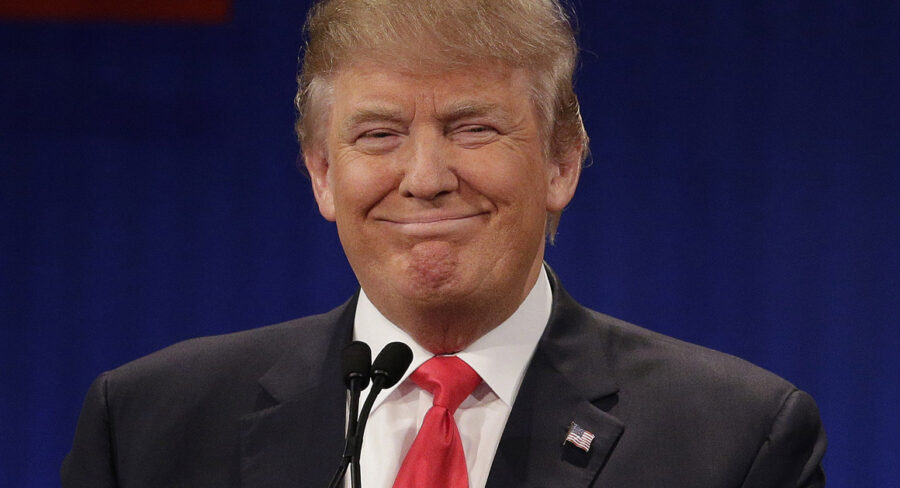“I went to an Ivy League School. I’m very highly educated. I know words. I have the best words.”
It was simply natural (albeit mean) for many to use the words Donald Trump and “ignorant” or (even lazier) “stupid” in the same sentence. NOTE: This only applies to Trump, not his supporters (who have clearly expressed they have as many reasons in favor of him as they do against Hillary Clinton and the status-quo). Trump represents a new iteration of the “Know-Nothing” party in American history — not simply because of the manner in which his campaign tapped into the same populist fear of immigration that was the hallmark of the original Know-Nothing movement, but also because his campaign appealed so consistently to fear and bigotry rather than reason. I wager that Donald Trump has never read a single book of substance in his entire life. It is a talking point in the Election Day aftermath that Trump resoundingly led with voters in the non-college educated portion of the country. The Republican party was declared by the media and political experts to be a dinosaur, in desperate need of reconfiguration, and painfully out of touch with an increasingly progressive and diverse demography.
And yet, this morning, it turns out the “experts” were wrong.
I was wrong.
Everybody who convinced themselves that America could never vote for someone as temperamentally unsound and as morally unfit as Donald Trump has just felt the rug pulled from under their feet.
The GOP party is not the Know-Nothing Party — it turns out everybody else is.
The saying pervasive in Hollywood applies equally to Washington D.C.: “Nobody knows anything…” but we may have to make Trump the exception. Donald Trump was right. He touted that he could win key battleground states like Michigan, Pennsylvania, and Florida. Many of us laughed. He was right. He said that the media was spinning lies and that he was actually leading in the polls. Again, laughter. He was right. That he did not gloat, “I told you so,” in his victory speech is a testament to his newfound constraint (or perhaps to the strength of his medication).
Much of the American socio-political literati are exposed this morning as having no clothes, embarrassingly off the mark with all of their predictive data and polling information. It is they who now appear out of touch and woefully naïve. For fairness sake, I will let Margaret Sullivan defend the perspective of the media on this point:
We wanted to believe in a country where decency and civility still mattered, and where someone so crude, spiteful and intemperate could never be elected — because America was better than that. I can fault journalists for a lot of things, but I can’t fault us for that.*
Is there a way out of my own Echo Chamber?
Seeing all of those red states supporting President-elect Trump on election night has re-awakened me to the extent of my dislocatedness to my country. I am a second-generation Asian-American, identifying as broadly evangelical though politically trending left, committed to family, university-educated, professionally trained, and now (in many meaningful ways) a stranger in my own country. My Facebook feed reveals an embarrassing homogeneity of anti-Trump rhetoric. I realize I have very few close friends (even acquaintances) who openly voted for Trump. If I can confess this, I now recognize this as a problem that I am clueless how to repair. Is it so simple as stepping out to befriend people drastically different from myself? Would Trump supporters want to associate closely with me?
IF “NOBODY KNOWS ANYTHING” – WHAT CAN WE LEARN?
We all have something to learn this week. I will risk putting out some recommendations despite my now shaken confidence to do so. If there is a common enemy for all Americans, I propose that it is ignorance — a failure to listen to the other side; a failure to be as informed to the best extent we are able. While I am not a particular fan of Mike Rowe, I believe he provided some crucially helpful wisdom for Americans in his appeal to all voters to read and cultivate an informed opinion of the world, the democratic process, and the direction of our country. His comments are worth reading here:
The fog has not yet lifted for me and my house. It still feels very much like a bad dream. I have no words to “normalize” this election and propose “a way forward.”
If I may, as is part of my task as a writer on this team, let me appeal to my own tribe: Christians committed to following the way of Jesus. The identity of the “evangelical voter” will be a topic of scrutiny in the weeks to come. As Christians, I humbly urge that you do not withdraw to a privatized faith in an increasingly hostile environment. Do not console yourself only with the distant hope that God will set things aright in the end. Come together. Be the church in the world and for the world. Publicly show that your faith matters in ways beyond divisiveness and condemnation. Live lives of compassion, integrity, and love. Assist the poor. Defend the powerless. Care for the widow and the orphan. Stand up for truth.
Above all, learn from Christ (Matt 11:29; Eph 4:20; Phil 4:9). Practice the ways of Christ-like giving and love. The essence of “discipleship” is learning: being taught everything that Christ has commanded (Matt 28:20).






2 Comments
Leave your reply.